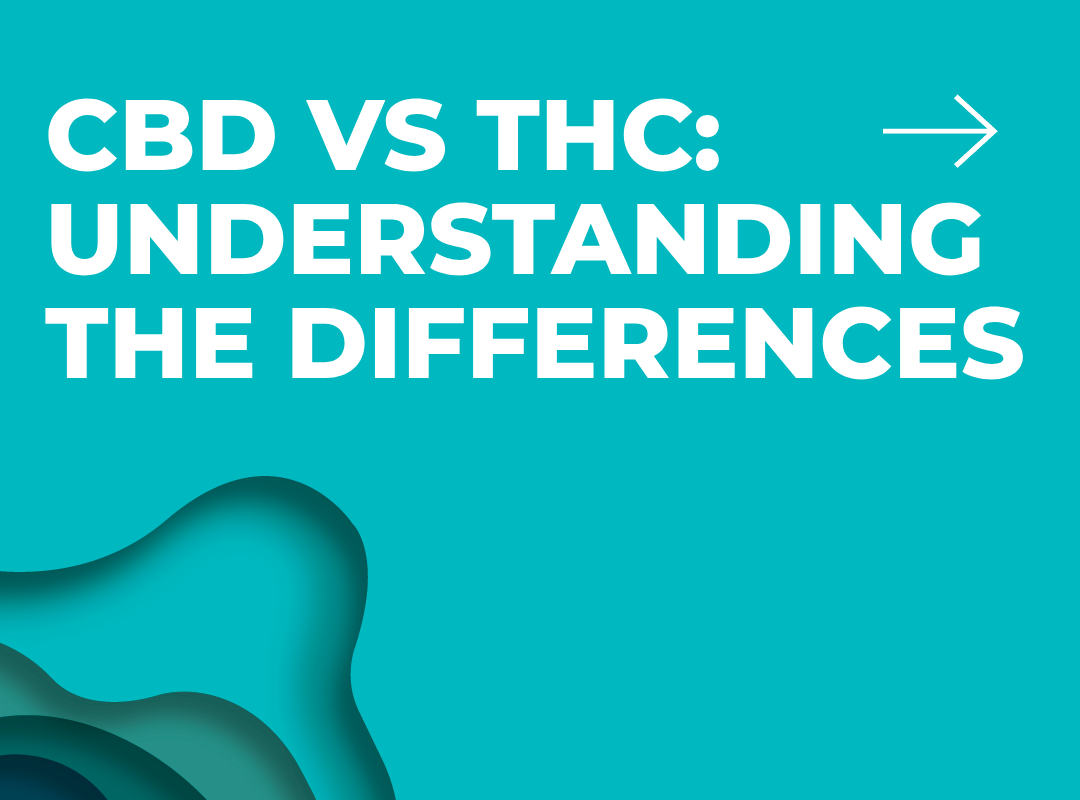
One of the most common questions we get in our cannabis dispensary in North York is ‘What is the difference between THC and CBD?’
Anyone who has begun looking at cannabis will likely have come across both CBD and THC. Both are found within cannabis, and both contribute to the well-known effects of it.
This article explores these two compounds, looking at what they are, how they work in the body, and what benefits they may have.
CBD Versus THC: What Are They?
Derived from the Cannabis sativa plant, cannabis has been consumed for thousands of years. It can be found across cultures and has various different uses. While cannabis contains more than 100 different compounds, the two most well-known are THC and CBD.
CBD and THC are both cannabinoids. This means that they are plant compounds that interact with the endocannabinoid system (ECS) within the human body. While being similar in chemical structure, with both compounds containing 21 carbon atoms, 30 hydrogen atoms, and 2 oxygen atoms, their slight differences mean that these compounds produce different effects on the body.
CBD
CBD, or cannabidiol, can be extracted from both hemp and cannabis. CBD is known as the weakest of the two well-known cannabinoids and is not psychoactive. This means it does not produce the ‘high’ associated with cannabis when used on its own.
When searching for ‘CBD near me’ you may notice products like CBD oil and CBD gummies that are available, even in countries where cannabis itself is not legal. This is because many countries allow CBD products, provided that they have next to no THC content. We’ll go into detail about the legality of these compounds later on.
CBD, like other cannabinoids, interacts with the ECS. However, it does not bind to the receptors. Instead, CBD modulates the CB1 and CB2 receptors within the system and produces much more restrained effects than THC does.
CBD has become a popular natural remedy around the world. It is known for having therapeutic benefits and is now used both internally and externally.
THC
THC, or delta-9-tetrahydrocannabinol, is the primary psychoactive compound found in cannabis. It is responsible for the euphoric ‘high’ associated with cannabis. THC binds to CB1 cannabinoid receptors in the ECS. These receptors are found mostly in areas of the brain associated with memory, pleasure, and thinking.
Due to the location of the receptors, THC can produce feelings of relaxation, altered perception of time, increased appetite, and changes to sensory perception. THC also binds to CB2 receptors, which are found in the peripheral nervous system, mostly in immune cells.
The interaction between THC and the CB2 receptors within the ECS is much less understood but may modulate immune responses and reduce inflammation in the body.
THC is much more restricted around the world. Indeed, the legal status of the compound varies from country to country and even within the different regions of a country.
Like CBD, THC can have many positive effects on the body.
Legal Guidelines
In Canada, cannabis is legal for recreational use. Public possession is limited to 30g of dried cannabis or the equivalent. For medical cannabis, public possession differs.
Medical cannabis has different legal statuses around the world. It is available in some countries that do not allow the recreational use of cannabis. However, in other countries, there is a total ban on cannabis, medical or otherwise.
CBD
CBD has differing legal status in countries and regions around the globe. Legality is based on a range of properties, including the source of CBD (whether it comes from hemp or marijuana), the THC content, and the intended use of the product.
Generally, CBD is legal in more regions than cannabis itself. CBD is legal across Canada.
If you are travelling with CBD, you must check local laws before using or possessing the substance. Some countries treat possession of CBD as they do possession of cannabis, and hefty sentences are passed down to foreign nationals who break these rules.
THC
Unlike CBD, THC has a much more contentious legal status worldwide. THC is completely legal within Canada, however, the legality varies from state to state in the US.
Medical cannabis, which contains THC, is legal in some countries, and CBD products containing small amounts of THC are also legal in some places. Cultivation of cannabis plants containing THC varies in legality too.
As with CBD, if you are carrying THC-containing products, or cannabis, around the world, please ensure you check out local laws.
Final Thoughts
While CBD and THC have similar chemical structures, they play different roles in the body. Each interacts with the endocannabinoid system differently and has different therapeutic benefits. Both compounds have different legal statuses around the world, too.
If you’re considering using cannabis or CBD for its health benefits, it is imperative that you speak with a healthcare professional before doing so. Much of the research into these compounds is in its early stages and, as such, a medical practitioner is in the best position to guide you.
Are you looking for a weed dispensary in Toronto? Qunubu Cannabis has a store in North York as well as an online shop. We offer local delivery and our helpful staff can advise you on the best products for your needs. Get in touch now or pop into the store to find out more.
